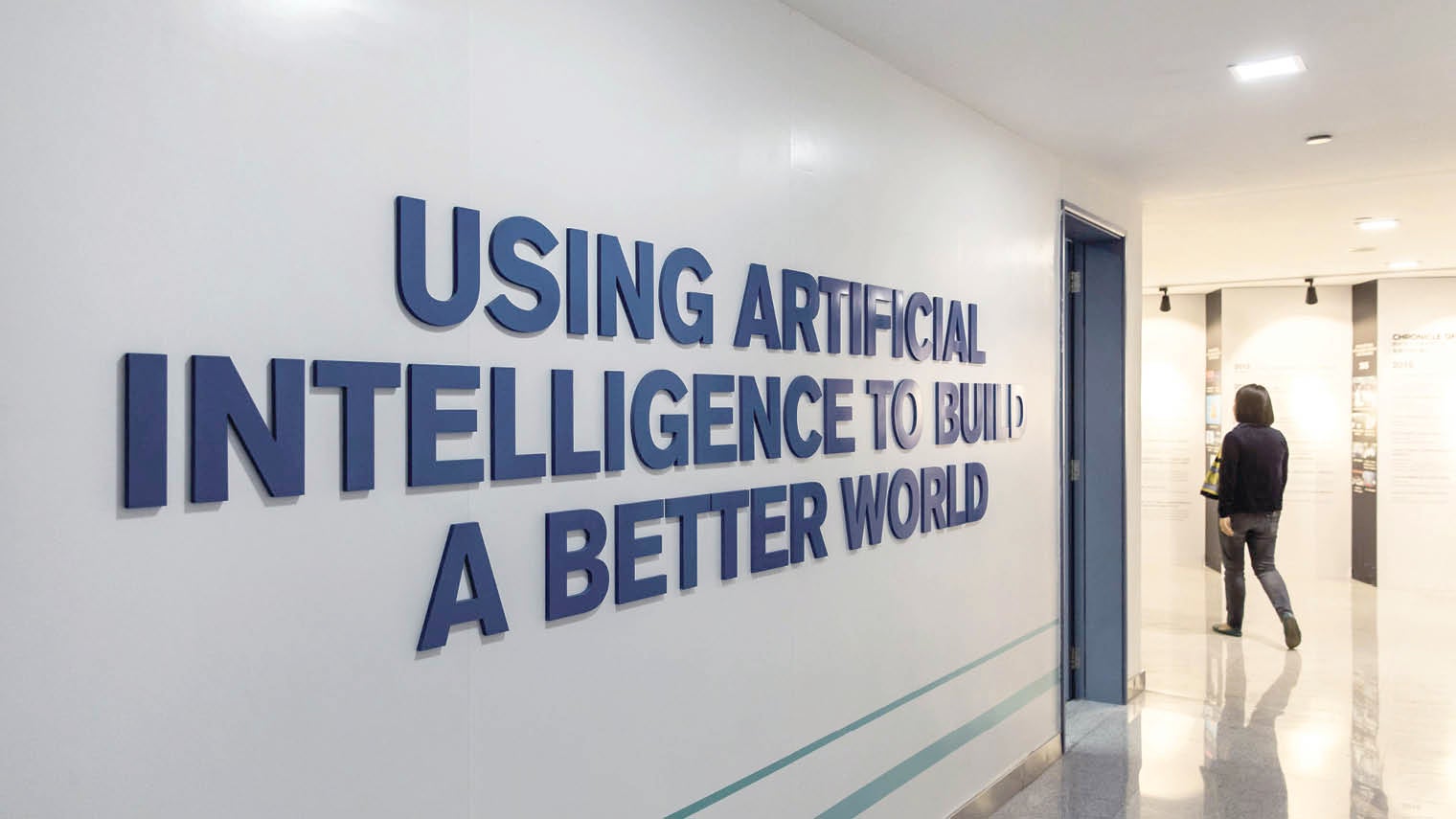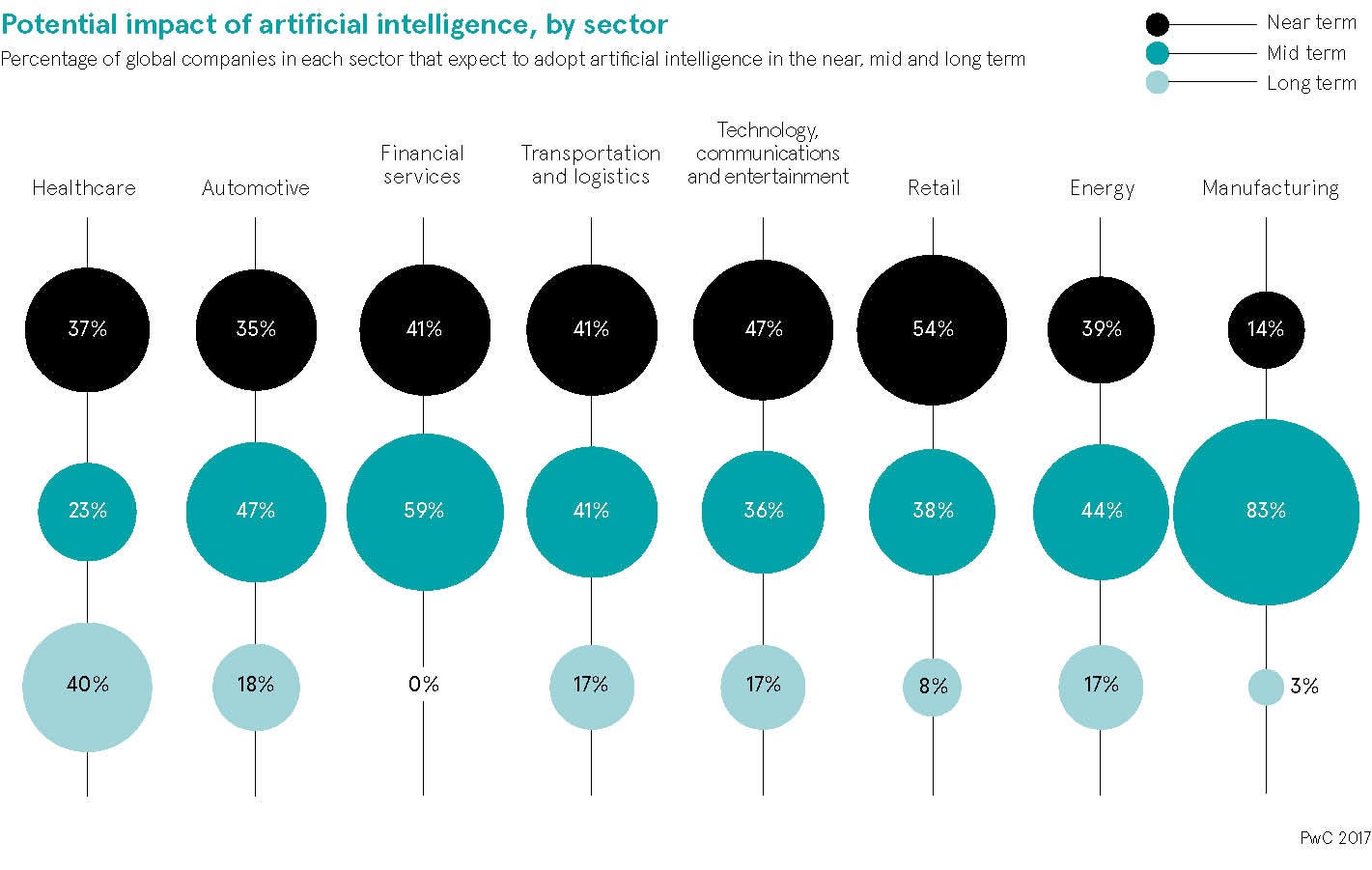Artificial intelligence, or AI, and machines threatening humanity’s status quo have, for decades, been the staple of dystopian science fiction. Now the bot has bolted. AI is walking and talking among us, and early business adopters are most likely to prevent a doom-laden conclusion.
Thanks to the advent of enabling technologies – machine-learning, inexpensive high-speed internet, secure cloud storage, mobility solutions and low-cost devices – the fantastical possibilities of the past have become reality. Voice-recognition systems are ubiquitous, driverless cars are queueing up to be unleashed on our roads and chatbots are so advanced it that can be impossible to determine whether the online customer-service operative you are communicating with has a pulse.
AI is now poised at the impact threshold of shifting from emergent and peripheral to mainstream and increasingly omnipresent
Experts agree that 2018 is likely to be the year AI breaks into the mainstream. The joke that machine-learning is like teenage sex – everyone talks about it, but very few actually have it – is outdated. It is time for C-suiters to get serious and engage with AI, realise its huge untapped potential and take the lead in shaping the present, as well as the future. Simply put, those who fail to evolve their business plans face being washed away.
“Everything invented in the past 150 years will be reinvented using AI within the next 15 years,” predicts San Francisco-based Randy Dean, chief business officer at Launchpad.AI. “Every industry is going to be affected; almost every enterprise problem is ripe for an AI-derived solution or improvement. In the same way that the internet rippled through the business community over the course of ten to fifteen years, and the mobile did the same, AI will take that same path.”
Consider that since 2000 more than 52 per cent of Fortune 500 companies have gone bankrupt, been acquired or folded. It pays to invest and harness nascent, disruptive technologies, evidently. “Look at the market leaders 20 years ago, some of them don’t exist,” says Mr Dean. “And the ones that are leading now had not been established back then. In essence, if there is any process a computer or machine can do more efficiently or rapidly, then the business model needs to change.
“It will take multiple years for organisations to begin to take full advantage of AI, but it is something that business leaders need to focus on, otherwise they are going to start losing ground to competitors that are using it. There is a sense of urgency because 2018 is certainly going to be the year that most progressive organisations formulate plans around AI.”
Calum Chace, author of The Economic Singularity, agrees that while the maximum disruption wrought by AI will take a decade or more, it is paramount business leaders don’t ignore it. “In the medium to long term, AI will change everything,” he says. “In the short term, companies are working with chatbots, robotic process automation and analysing huge pools of data for correlations, which yield interesting and valuable insights about their customers.
“As such, AI doesn’t currently reset the world to a blank slate and I don’t think companies should rip up their traditional plans. However, organisations will be in jeopardy if they are not thinking hard about how to deploy AI, learning and experimenting with it, and scanning the horizon to see what other companies and new entrants are up to with it.”
Shashi Nirale, Servion Global Solution’s senior vice president and general manager for Europe, Middle East and Africa, thinks immediate adoption is critical. “We estimate that by 2020 some 95 per cent of customer interactions will be carried out by some form of AI,” he says. “Advances in speech recognition, biometric identification and neurolinguistics will also mean that as customers interact with businesses and brands via voice, our experiences will become increasingly conversational and human-like.”

Inside the Guangzhou headquarters of Chinese voice recognition and language technology firm Iflytek
The hordes of forward-thinking and/or panicked C-suiters seeking expertise and collaboration to gain a firmer grip on AI should beware bad guidance, warns Alastair Little, chief operating officer of GlobalWebIndex. Most crucially, understand that data fuels AI; algorithms must be tailored to specific needs to achieve optimal benefit.
“To thrive in this area, business leaders need to pay close attention to the accuracy of the data they are using, and question its accuracy and validity,” he says. “When it comes to creating AI capabilities, a lot of advice focuses on investment in infrastructure and talent. What is less often discussed is the quality of the data that feeds AI models. This is a wider problem endemic of the big-data age; people take data on face value.
“The origins of datasets can be hard to understand, often simply because the methodologies used to create them are complex and opaque. AI is hampered when fed with inaccurate data, making connections and conclusions that don’t exist. These have the potential to lead businesses down the wrong path.”
Far from the dystopia envisioned by sci-fi writers of old, if fully embraced, AI has the potential to bring about positive evolution for organisations, in particular, and humanity as a whole, according to Sally Eaves, a member of Forbes Technology Council.
“AI is now poised at the impact threshold of shifting from emergent and peripheral to mainstream and increasingly omnipresent,” she says. “During this year of transition and transformation, AI will not only be a catalyst for deep disruptive change in business, but for wider societal benefits too.”
Ms Eaves believes that should this happen it will be as pivotal in history as Apollo 11’s 1969 Moon landing. “It may be a small step in terms of disruptive technologies,” she adds, with a nod to Neil Armstrong, “but if AI fulfils its potential, it truly would represent a giant leap for business, economy and society.”





